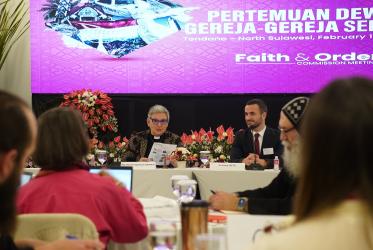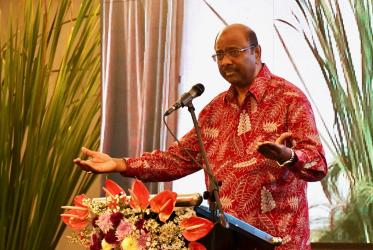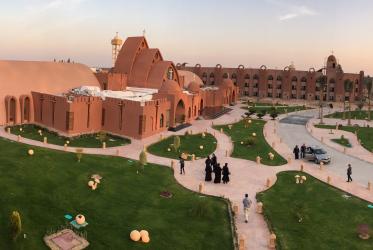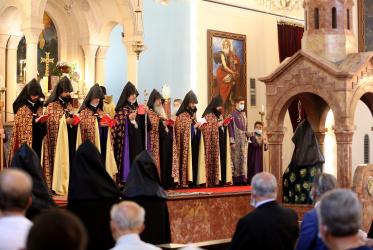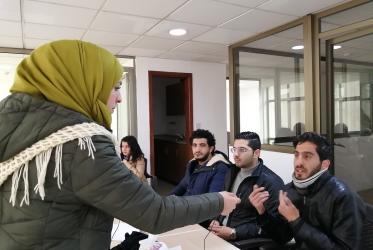Displaying 1 - 20 of 183
WCC prays for abducted archbishops of Aleppo
23 April 2024
WCC Commission on Faith and Order gathers with hope at the heart
03 February 2024
Promoting human dignity through art
06 September 2022
In pictures: Week of Prayer for Christian Unity
01 February 2021
In a COVID-stricken world, “everyone is important”
23 October 2020
Are migrants seen and heard? Conference presses the question
19 October 2020


